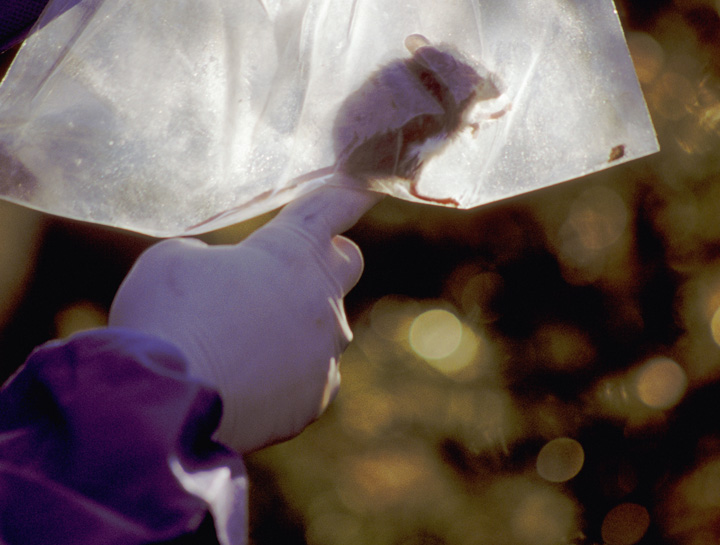With warmer weather on the way, the Saskatchewan government is urging people to take precautions against the hantavirus.

Hantavirus can cause hantavirus pulmonary syndrome, a rare but potentially fatal lung illness.
Between 1994 and 2020, 36 cases of hantavirus pulmonary syndrome were reported in Saskatchewan; 12 of those cases were fatal.
“The risk of contracting hantavirus infection is currently low in Saskatchewan,” said Dr. Julie Kryzanowski, Saskatchewan’s deputy chief medical health officer, in a statement on Monday.
“However, you can get hantavirus by breathing in contaminated airborne particles from the droppings, urine and saliva of infected deer mice.”
Ministry of Health officials said exposure most often occurs when cleaning up enclosed buildings, or equipment and vehicles that have been in storage for the winter.

Get weekly health news
Symptoms usually start within one to six weeks of exposure and include fever, muscle aches, cough, headaches, nausea and vomiting, with some people developing severe symptoms that can be life-threatening.
They said people should seek medical attention immediately if they have a cough, fever and shortness of breath.
- Daylight saving time 2026: Here’s when you should set your clocks forward
- Liberals survive confidence vote as House passes budget implementation bill
- Conservative MP searches for ‘antifa’ in federal government, Canadian Armed Forces
- Canadians stranded in Puerto Vallarta after violence disrupts flights home to Edmonton
Health officials said there are a number of precautions to take when cleaning mouse droppings and nesting areas to avoid exposure to the hantavirus:
- ventilate the building by opening doors and windows for at least 30 minutes before cleaning
- use wet mopping methods and wear rubber or plastic gloves
- wear goggles and a well-fitting N-95 type filter mask when cleaning areas contaminated by droppings in a confined space
- dampen areas contaminated with rodent droppings with bleach disinfectant and remove droppings with a damp mop or cloth
- avoid using dry cleaning methods such as dusting, sweeping, vacuuming or air-hosing
- steam clean, shampoo or spray upholstered furniture with a detergent, disinfectant or a mixture of bleach and water
- wash clothes and bedding with detergent in hot water
Ways to avoid rodent infestations include blocking openings that might allow them to enter buildings, storing food water and garbage in containers with tightly fitted lids and moving woodpiles or other potential hiding places for mice away from homes.









Comments
Want to discuss? Please read our Commenting Policy first.